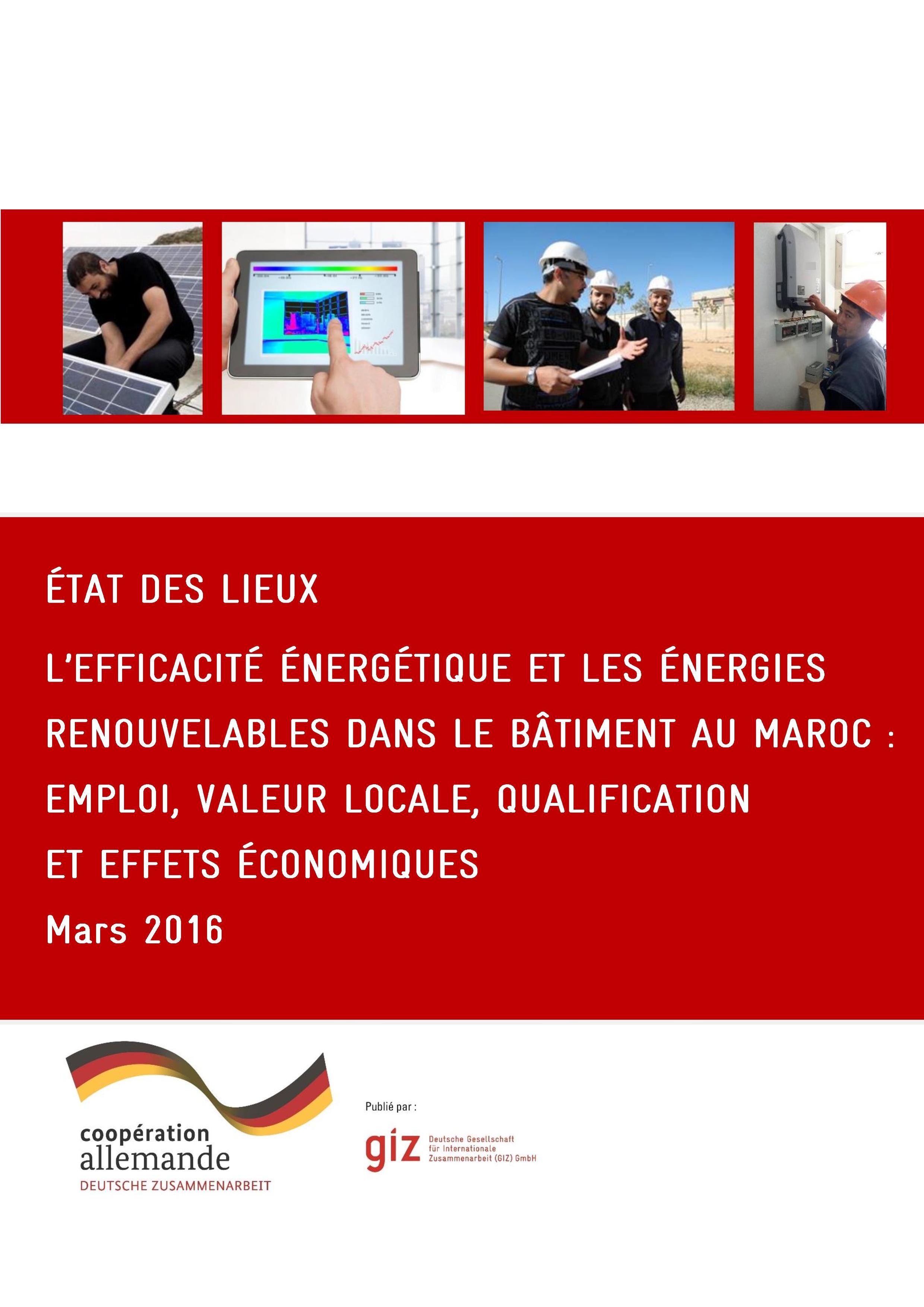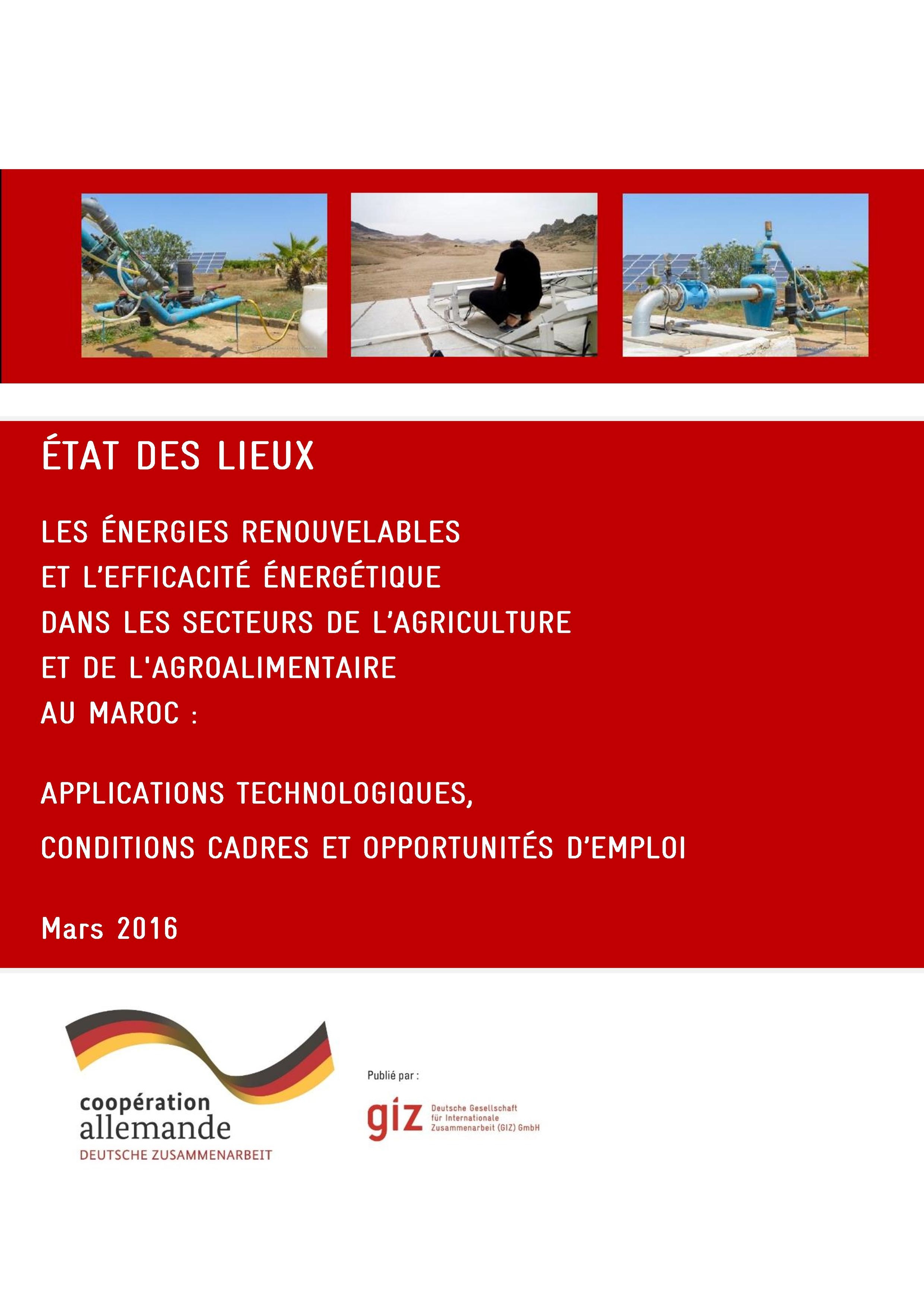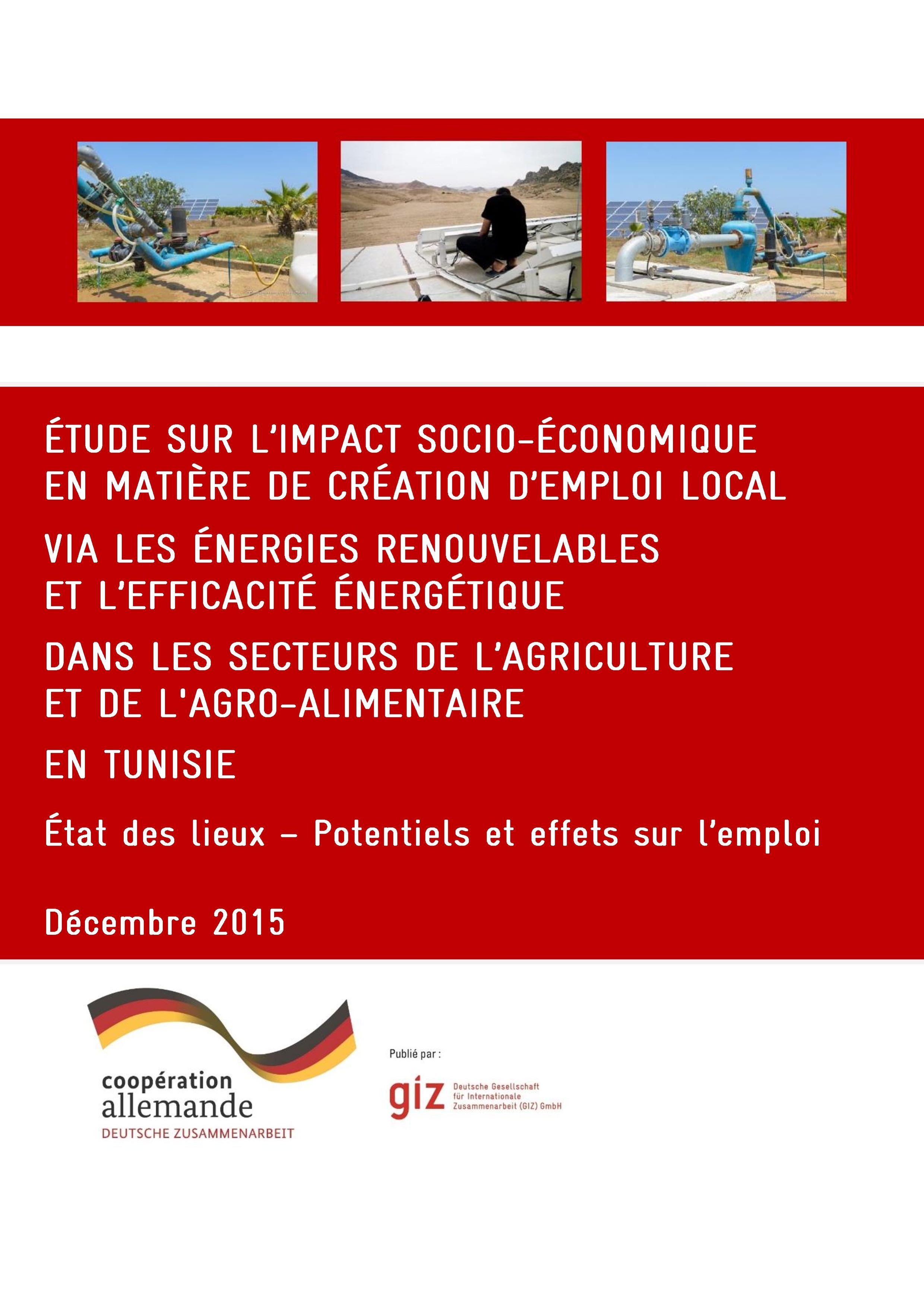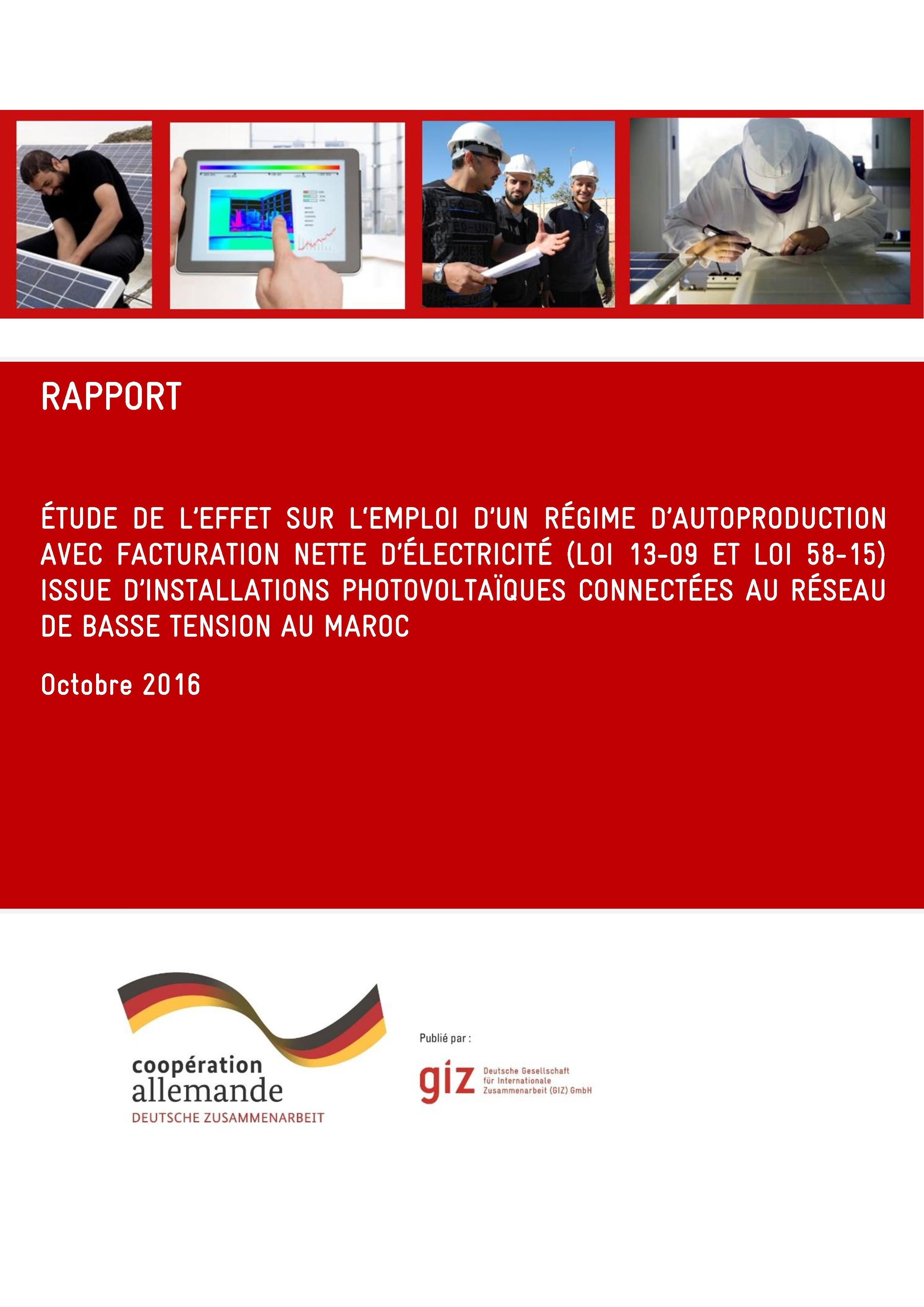Knowledge fuels change - Support energypedia!
For over 10 years, energypedia has been connecting energy experts around the world — helping them share knowledge, learn from each other, and accelerate the global energy transition.
Today, we ask for your support to keep this platform free and accessible to all.
Even a small contribution makes a big difference! If just 10–20% of our 60,000+ monthly visitors donated the equivalent of a cup of coffee — €5 — Energypedia would be fully funded for a whole year.
Is the knowledge you’ve gained through Energypedia this year worth €5 or more?
Your donation keeps the platform running, helps us create new knowledge products, and contributes directly to achieving SDG 7.
Thank you for your support, your donation, big or small, truly matters!
Employment Effects of Renewable Energy and Energy Efficiency in MENA Countries (Re-Activate Studies)
Overview
RE-ACTIVATE’s publications dealing with RE/EE employment effects and potentials in MENA countries can be subdivided into three main types of publications:
- Country-level studies dealing with RE/EE in MENA
- Studies dealing with specific RE/EE sectors or technologies in MENA
- Studies dealing with specific RE/EE market actors and institutions in MENA
Country-level studies
RE-ACTIVATE has so far launched two studies that take a comprehensive look at the socio-economic effects, especially local job and value creation, achieved through RE/EE (all technologies and sectors confounded) at the country level: one for Tunisia (completed in 2016) and one for Egypt (to be completed in 2017). Both aimed to carry out a quantitative as well as a qualitative assessment of the aforementioned impacts of RE/EE, in addition to calculating capacity building needs of the partner country and to providing practice-oriented recommendations to policy makers.
- The Socio-Economic Impacts of Renewable Energy and Energy Efficiency in Tunisia: Employment, Qualification and Economic Effects (Link) (in the process of revision)
- The Socio-Economic Impacts of Renewable Energy and Energy Efficiency in Egypt: Employment, Qualification and Economic Effects (Link) (in the process of preparation)
Sector- or technology-specific studies
RE-ACTIVATE has in addition launched a number of studies that look more deeply into the local job and value creation effects that have been or could be achieved in specific RE and/or EE sectors or through specific RE and/or EE technologies. Special attention has been paid to those applications that require an over-average amount of local labor, or those sectors in which concrete market opportunities for local value creation can already be detected. As with the country-level studies, both quantitative and qualitative aspects of RE/EE employment creation have been covered, and on the basis of these findings the capacity building needs of the partner countries have been calculated, and practice-oriented recommendations produced for policy makers.
 |
 |
 |
 |
Market Assessment for Solar Pumping in Egypt (in the process of elaboration) |
Actor- or institution-specific studies
RE-ACTIVATE has finally launched a number of studies that address the potential role and contribution of specific actors or institutions for a locally driven and job-intensive roll of RE/EE in MENA. This concerns a wide array of relevant topics, including new market opportunities for specialized RE/EE service providers (bureaux de contrôle, bureaux d’études), new forms of self-organization of relevant markets actors (e.g. RE/EE clusters and cluster-like organizations), and quality assurance and quality control in the field of RE/EE training and service provision.
- Analyse de faisabilité: Introduction des bureaux de contrôle dans le secteur des énergies renouvelables en Tunisie (Link)
- Standards de qualité pour les bureaux d’études dans le secteur des énergies renouvelables en Tunisie (Link) (in the process of elaboration)
- International Quality Standards and Quality Assurance Mechanisms for Renewable Energy and Energy Efficiency Training (Link)
- Normes de qualité et mécanismes d’assurance qualité pour la formation en énergies renouvelables et en efficacité énergétique (Link)
- Training Sector Mapping for RE-ACTIVATE Focus Countries (Link)
- Regional Cluster Screening MENA (Link) (in the process of editing)
- Cluster Country Analyses MENA (Link) (in the process of editing)



















